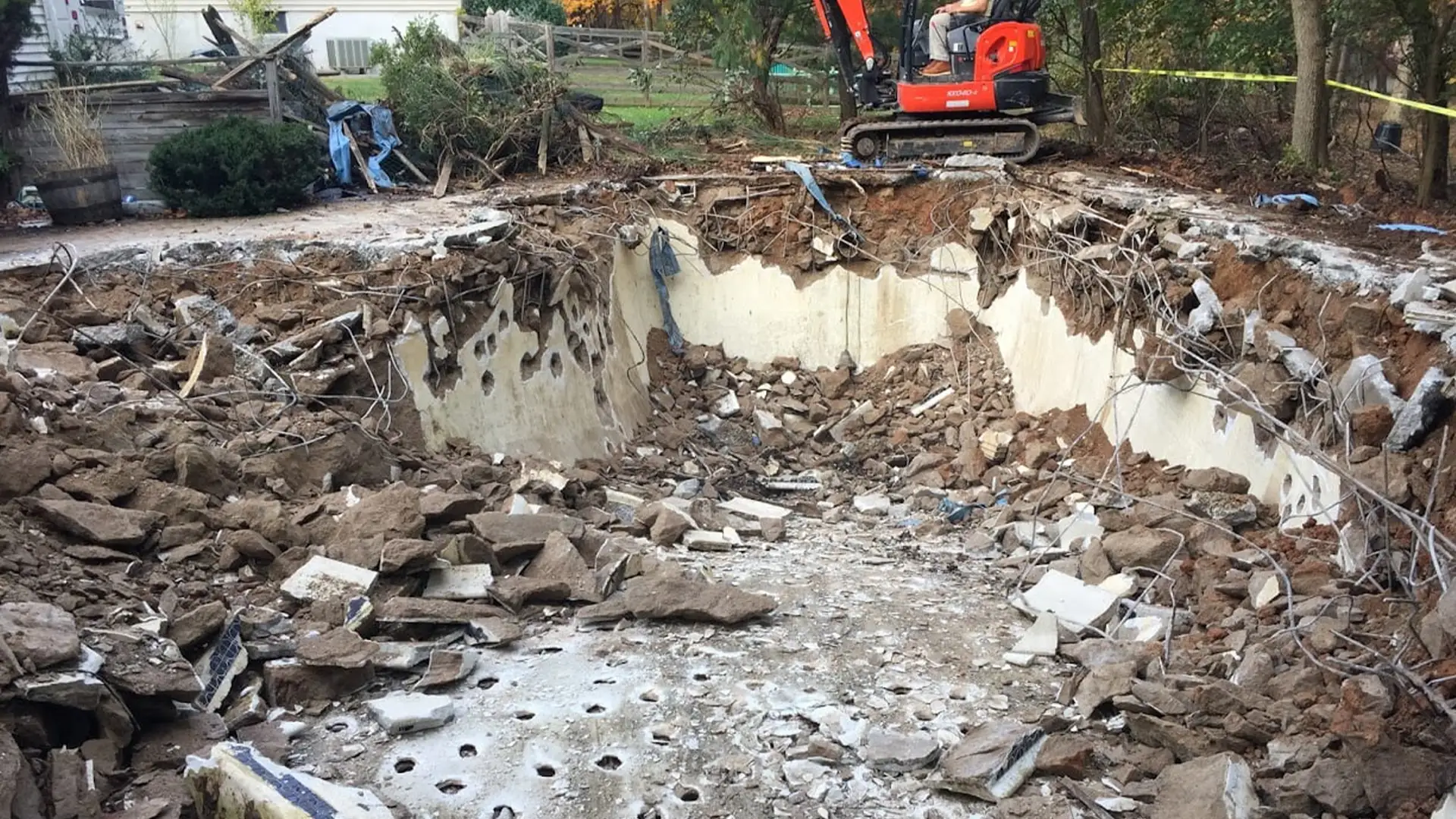What is a Concrete Pool? A Comprehensive Guide for Homeowners
Concrete pools are a popular choice among homeowners seeking a durable and customizable swimming pool. Built from a mixture of cement, sand, and water, concrete pools are known for their strength, versatility, and long lifespan. In this guide, we’ll dive into what makes these pools stand out, their benefits, common maintenance issues, and why they might be the perfect fit for your backyard.
Understanding Concrete Pools: How They’re Built
Concrete pools are created by spraying a concrete mixture (either gunite or shotcrete) onto a reinforced steel frame. This flexible building method allows homeowners to design pools in any shape or size, making them ideal for custom and unique backyard designs.
The two main methods of construction include:
- Gunite Pools: A dry mix sprayed onto the pool framework with water added at the nozzle.
- Shotcrete Pools: A wet mix of concrete applied directly to the surface.
Both methods result in a strong, durable pool, but the application techniques differ slightly. After the concrete is applied, it’s smoothed out, allowed to cure, and then finished with plaster, tile, or other interior options.
Top 5 Benefits of Owning a Concrete Pool
- Unlimited Design Flexibility: One of the biggest advantages of concrete pools is that they can be customized to fit any design preference. Whether you want a large, deep pool for diving or a sleek, modern design, concrete allows you to create a truly unique pool.
- Durability: Concrete pools are among the most durable pool types on the market. With proper care, they can last for decades, standing up to harsh weather conditions and regular use.
- High-Quality Finishes: You can choose from a variety of finishes, including smooth plaster, elegant tiles, or even textured aggregates. This versatility allows you to create the perfect look for your pool and blend it with your landscape.
- Long Lifespan: While other pools might require frequent repairs or replacements, concrete pools are built to last. They can handle environmental stress and last longer than fiberglass or vinyl-liner pools.
- Value Addition to Property: A well-maintained concrete pool adds significant value to your home. Because they are custom-built and durable, they are seen as a luxury feature that can attract potential buyers.
Common Maintenance Requirements for Concrete Pools
While concrete pools are durable, they do require regular maintenance to stay in top shape. Here are some of the common upkeep tasks:
- Regular Brushing: Concrete pools are porous, making them more prone to algae growth. Weekly brushing of the walls and floor helps prevent algae buildup.
- Balancing Chemicals: Maintaining the right chemical balance in your pool is crucial to avoid scaling or staining. Regular water testing and adjustments are needed to keep the water clean and the pool surface in good condition.
- Resurfacing Every 10-15 Years: Over time, the interior surface of your concrete pool may wear down, requiring resurfacing. This is typically done every 10-15 years to keep the pool looking and functioning like new.
- Crack Repairs: Concrete can develop cracks over time due to natural ground movement or temperature changes. Promptly addressing minor cracks prevents leaks and more costly repairs later on.
Concrete Pool vs. Fiberglass and Vinyl-Liner Pools
If you’re deciding between different types of pools, here’s how concrete pools stack up against fiberglass and vinyl-liner options:
- Customization: Concrete pools offer the most design flexibility, allowing for unique shapes, sizes, and features. Fiberglass and vinyl-liner pools come in pre-fabricated shapes, limiting customization.
- Durability: Concrete pools are the most durable, with a lifespan of 30 years or more. Fiberglass pools can last 20-25 years, while vinyl liners need replacement every 5-9 years.
- Maintenance: Concrete pools require more maintenance due to their porous surface, while fiberglass pools are smoother and easier to clean. Vinyl-liners are also relatively low-maintenance but can puncture easily.
- Installation Time: Concrete pools take the longest to install, often several weeks or even months. Fiberglass and vinyl-liner pools have quicker installation times, usually within a few days to a week.
How Much Does a Concrete Pool Cost?
The cost of installing a concrete pool can vary based on its size, shape, and the complexity of the design. On average, homeowners can expect to pay between $50,000 and $100,000 for a standard concrete pool installation. Custom features like waterfalls, infinity edges, and intricate tile work can increase the price.
It’s also important to consider long-term maintenance costs, which can include resurfacing, chemical treatments, and repairs. While concrete pools have higher upfront costs, their longevity and custom features can make them a worthwhile investment.
Is a Concrete Pool Right for You?
If you’re looking for a pool that offers endless customization options, long-term durability, and adds significant value to your property, a concrete pool may be the right choice. While the installation process takes longer and maintenance is more intensive, the payoff is a stunning, one-of-a-kind pool that will last for decades.
Transform Your Backyard with a Concrete Pool
A concrete pool offers the perfect blend of luxury, design flexibility, and durability, making it a popular choice for homeowners who want more than just a standard swimming pool. Whether you’re looking for a family-friendly pool or a backyard retreat, a concrete pool can be tailored to meet your specific needs.









